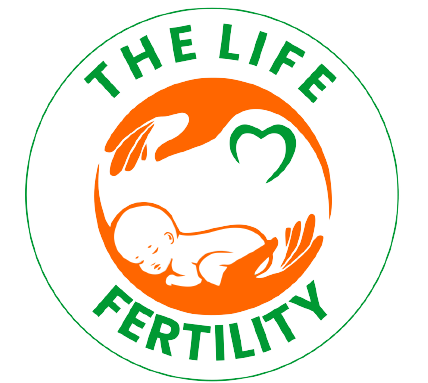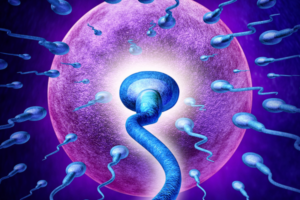Introduction
Infertility is a complex and often misunderstood medical condition that affects millions of individuals and couples worldwide. At its core, infertility is defined as the inability to conceive after 12 months of unprotected sexual intercourse or the difficulty in maintaining a successful pregnancy. This condition can have a profound impact on an individual’s physical, emotional, and social well-being, and it is essential to understand its underlying causes.
One of the primary causes of infertility is hormonal imbalances. These imbalances can occur in both men and women, and they can disrupt the delicate balance of reproductive hormones, leading to issues with ovulation, sperm production, and overall reproductive function. Structural issues within the reproductive system, such as blockages in the fallopian tubes or uterine abnormalities, can also contribute to infertility. Additionally, underlying medical conditions, such as polycystic ovary syndrome (PCOS), endometriosis, or thyroid disorders, can significantly impact fertility.
Genetic factors can also play a role in infertility. Certain genetic mutations or chromosomal abnormalities can affect the development and function of the reproductive organs, leading to difficulties in conceiving or maintaining a pregnancy. Lifestyle and environmental factors, such as obesity, smoking, excessive alcohol consumption, and exposure to toxins, can further exacerbate the problem by negatively impacting reproductive health.
Table of Contents
Common Symptoms of Infertility in Women
Infertility in women can manifest through a variety of symptoms, which can provide valuable clues for healthcare providers in diagnosing and addressing the underlying issues.
Irregular Menstrual Cycle
One of the most common signs of infertility in women is irregular menstrual cycles, which can include missed or delayed periods, as well as abnormal bleeding or spotting. These irregularities can be indicative of hormonal imbalances or other reproductive system disorders.
It can be disheartening and confusing to experience irregular menstrual cycles, as they can signal underlying health issues such as polycystic ovary syndrome (PCOS), thyroid disorders, or even early onset menopause. Oftentimes, women may overlook these symptoms or attribute them to stress or lifestyle factors. However, it’s essential to recognize the potential signs of infertility that irregular menstrual cycles can indicate.
Tracking your cycle and noting any changes in length, flow, or intensity is crucial for understanding your body’s patterns and seeking medical advice if needed. Consulting with a healthcare provider can help identify the root cause of irregular cycles and provide tailored solutions to support overall reproductive health.
Pelvic Pain And Discomfort
These are also common symptoms associated with infertility in women. Cramping during menstruation or chronic pelvic pain can be a sign of underlying conditions, such as endometriosis or uterine fibroids, which can interfere with fertility.
Pelvic pain and discomfort can be distressing for many individuals, particularly when it is linked to issues of infertility. Recognizing the symptoms of infertility is crucial in addressing the root cause of pelvic discomfort. It’s essential to approach this topic with empathy and understanding, as those experiencing these symptoms may feel overwhelmed by emotional and physical challenges.
Change In Sexual Desire
Changes in sexual desire, such as a decreased libido, or experiencing pain during intercourse, can significantly influence fertility. A reduced libido means less frequent sexual activity, which naturally decreases the chances of conception. Painful intercourse can also deter regular sexual engagement and may be indicative of underlying health issues that could affect reproductive health.
Both conditions can stem from a variety of physical or psychological causes including hormonal imbalances, stress, fatigue, relationship issues, or certain medical conditions. Addressing these issues not only helps in improving one’s sexual health but also increases the likelihood of successful conception.
Abnormal Discharge
Abnormal discharge can be a concerning symptom for individuals, often indicating an underlying health issue. It’s essential to recognize the difference between normal and abnormal discharge, as abnormal discharge may be a sign of infertility. In some cases, abnormal discharge may present as unusual odor, color, or consistency. If you notice any changes in your vaginal discharge that seem unusual or persistent, it is crucial to seek medical advice promptly.
Abnormal discharge can sometimes be linked to fertility issues, such as hormonal imbalances or infections that can impact the reproductive system. Understanding the symptoms of infertility and seeking early intervention can help in addressing potential underlying causes and increasing the chances of successful conception.
Other Symptoms Include
Other symptoms of infertility in women may include acne or excessive hair growth, which can be associated with hormonal imbalances, as well as unexplained weight changes, which can affect reproductive function. It is important for women experiencing any of these symptoms to seek medical attention, as early diagnosis and treatment can significantly improve their chances of conceiving and maintaining a healthy pregnancy.
Infertility can manifest through various signs such as irregular menstrual cycles or painful ovulation, which often coincide with pelvic pain. This intersection between physical discomfort and emotional stress underscores the need for holistic care and support for individuals grappling with these issues. By being vigilant about recognizing these symptoms early on, individuals can seek timely medical intervention and explore treatment options that cater to their unique needs.
Recognizing Infertility Symptoms in Men
While infertility is often associated with women, it is important to recognize that men can also experience symptoms related to infertility. One of the most common signs in men is changes in sexual function, such as erectile dysfunction or decreased libido. These issues can be indicative of underlying hormonal imbalances or other medical conditions that may be impacting fertility.
Testicle Pain or Swelling
Testicular issues, such as swelling or pain in the testicles, can also be a sign of infertility in men. Varicocele, a condition characterized by enlarged veins in the scrotum, can contribute to decreased sperm production and quality. This condition is one of the most common causes of male infertility and can significantly affect a man’s ability to conceive. Regular check-ups and timely medical intervention can help manage symptoms and improve fertility outcomes.
Hormonal Imbalances
Hormonal imbalances are another significant factor that can contribute to infertility in men. These imbalances can manifest through various physical changes, including alterations in facial or body hair growth. Men might notice either an increase or decrease in hair growth, which could indicate issues with hormones such as testosterone. Additionally, hormonal imbalances can lead to the development of gynecomastia, which is the enlargement of breast tissue in males. This condition not only affects physical appearance but can also be an indicator of more serious health issues affecting fertility.
Sperm-related Issue
Sperm-related concerns, such as decreased sperm count or motility, as well as abnormal sperm morphology, can be clear indicators of male infertility. These issues can be identified through a comprehensive semen analysis, which is a crucial diagnostic tool for evaluating male reproductive health. By recognizing these symptoms and seeking timely medical attention, men can take an active role in addressing infertility and improving their chances of conceiving.
Diagnostic Tests for Identifying Infertility
Diagnosing infertility requires a comprehensive evaluation by healthcare professionals, including a thorough physical examination and medical history review. During this process, healthcare providers will assess the reproductive organs and discuss various lifestyle and medical factors that may be contributing to the infertility.
For women, fertility tests may include ovulation testing, which helps determine the timing and regularity of ovulation, as well as hormone level assessments to identify any imbalances. Imaging tests, such as ultrasound or hysterosalpingogram (HSG), can provide valuable information about the structure and function of the reproductive organs, including the uterus and fallopian tubes.
In the case of men, the primary diagnostic tool is a semen analysis, which evaluates the quantity, quality, and motility of the sperm. Additionally, hormone level assessments and genetic testing may be conducted to identify any underlying hormonal or genetic factors that could be impacting fertility.
By combining the results of these various diagnostic tests, healthcare providers can develop a comprehensive understanding of the underlying causes of infertility, allowing them to create a personalized treatment plan that addresses the specific needs of the individual or couple.
Emotional Challenges of Dealing with Infertility
| Symptom | Description | Possible Causes | Treatment Options |
|---|---|---|---|
| Irregular periods | Menstrual cycles that are shorter or longer than usual | Polycystic ovary syndrome, thyroid problems, stress, weight changes | Medications, lifestyle changes, fertility treatments |
| Painful periods | Cramping, back pain, and other discomfort during menstruation | Endometriosis, uterine fibroids, pelvic inflammatory disease | Pain relief medication, hormone therapy, surgery |
| Abnormal discharge | Unusual color, odor, or consistency of vaginal discharge | Yeast infections, bacterial vaginosis, sexually transmitted infections | Antibiotics, antifungal medication, lifestyle changes |
| Low sperm count | Less than 15 million sperm per milliliter of semen | Varicocele, hormonal imbalances, infections, lifestyle factors | Fertility drugs, surgery, assisted reproductive technologies |
| Erectile dysfunction | Difficulty achieving or maintaining an erection | Diabetes, high blood pressure, hormonal imbalances, psychological factors | Medications, lifestyle changes, therapy |
Experiencing infertility can evoke profound emotions and present significant challenges for both individuals and couples. The inability to conceive or maintain a successful pregnancy can lead to feelings of grief, loss, and disappointment, which can be difficult to cope with. Many individuals struggling with infertility may feel a sense of inadequacy or failure, further compounding the emotional burden.
The strain on personal relationships is another common challenge faced by those dealing with infertility. The stress and tension within a couple can strain the relationship, and the isolation from family and friends can exacerbate the emotional turmoil. Individuals may feel misunderstood or unsupported, leading to a sense of loneliness and further emotional distress.
Infertility can also give rise to significant stress and anxiety, as individuals grapple with concerns about the future and the financial burden associated with fertility treatments. The lack of control over the situation can be overwhelming, leading to feelings of helplessness and uncertainty about the path forward.
Addressing the emotional aspects of infertility is crucial, as the psychological impact can have a profound effect on an individual’s overall well-being and the ability to navigate the challenges of this condition. Seeking support from mental health professionals, joining support groups, and engaging in self-care practices can be instrumental in helping individuals and couples cope with the emotional challenges of infertility.
Lifestyle Factors that Contribute to Infertility
Infertility is a complex condition that can be influenced by a variety of lifestyle factors, and it is essential to address these factors to improve reproductive health.

Excessive Weight
One of the significant contributors to infertility is obesity and weight-related issues. Excess weight can lead to hormonal imbalances, which can disrupt the delicate balance required for conception and successful pregnancy. Obesity affects both men and women by influencing various reproductive hormones. In women, it can lead to irregular menstrual cycles and ovulation problems, while in men, it can decrease sperm quality and count.
Furthermore, being overweight can also increase the risk of other health conditions that impact fertility, such as insulin resistance, type 2 diabetes, and thyroid disorders. These conditions further complicate the hormonal environment necessary for reproduction. Additionally, excess weight may affect the efficacy of fertility treatments and increase the risk of pregnancy complications such as miscarriage, gestational diabetes, and pre-eclampsia.
Substance Abuse
Substance abuse encompasses the misuse of various substances, including illegal drugs, prescription medications, and other legal substances used in a harmful way. Common examples include smoking tobacco, excessive alcohol consumption, and high intake of caffeine. Each of these can significantly impair fertility in both men and women.
Smoking, for instance, has been linked to reduced sperm count and motility in men and can lead to ovulatory problems and genetic issues in women. It also increases the risk of miscarriage and ectopic pregnancies.
Excessive alcohol consumption can lead to decreased sperm production and altered hormone levels in men, reducing their reproductive capacity. In women, heavy alcohol use can cause irregular menstrual cycles, anovulation (where no ovulation occurs), and early menopause, all of which are detrimental to fertility.
High caffeine intake, often overlooked, can also have negative effects on fertility. Studies suggest that consuming too much caffeine can reduce the likelihood of conception in women and may also affect sperm quality in men.
It’s important for individuals trying to conceive to be aware of these risks and consider moderating their intake or abstaining from these substances altogether to improve their chances of successful conception.
Chronic Stress and Lack Of Physical Activity
Chronic stress is a significant factor that can adversely affect fertility in both men and women. It disrupts the normal functioning of the hypothalamic-pituitary-gonadal axis, which plays a crucial role in reproductive health. The stress hormone cortisol can interfere with hormone production necessary for ovulation and sperm production, potentially leading to irregular menstrual cycles and decreased sperm count.
Additionally, a sedentary lifestyle and lack of physical activity can contribute to weight gain and other health issues that may impair fertility.
By addressing these lifestyle factors and making positive changes, individuals and couples can take proactive steps to improve their chances of conceiving and maintaining a healthy pregnancy. This may involve adopting a balanced and nutrient-rich diet, engaging in regular exercise, managing stress through relaxation techniques, and avoiding harmful substances.
Medical Treatments for Addressing Infertility
When lifestyle changes alone are not sufficient to address infertility, medical treatments may be necessary. One of the primary approaches is the use of medication and hormone therapy. For women, ovulation-inducing drugs, such as clomiphene citrate or letrozole, can help stimulate the ovaries to produce and release mature eggs, improving the chances of conception.
In men, testosterone replacement therapy may be prescribed to address hormonal imbalances and improve sperm production and quality. These medical interventions are often used in conjunction with other fertility treatments to optimize the chances of conception.
Assisted reproductive technologies (ART) have also become increasingly common in the treatment of infertility. In vitro fertilization (IVF) is one of the most well-known and widely used ART procedures, where eggs are fertilized with sperm in a laboratory setting and then transferred back into the uterus. Intrauterine insemination (IUI) is another ART technique, where sperm is directly placed into the uterus to increase the chances of fertilization.
In some cases, surgical interventions may be necessary to address specific reproductive system issues. For example, the removal of fibroids or endometriosis can improve the chances of conception, while varicocele repair in men can help address issues with sperm production and quality.
It is important to note that the choice of medical treatment for infertility will depend on the underlying causes, the individual’s specific circumstances, and the recommendations of the healthcare provider. A comprehensive evaluation and personalized treatment plan are crucial for addressing infertility effectively.
Seeking Professional Support and Counseling
Navigating the challenges of infertility can be a complex and overwhelming experience, and seeking professional support is crucial for individuals and couples. Working with a fertility specialist, such as a reproductive endocrinologist or a fertility clinic, can provide a comprehensive evaluation and a personalized treatment plan that addresses the specific causes of infertility.
These healthcare professionals can guide individuals and couples through the various diagnostic tests, medical treatments, and assisted reproductive technologies available, ensuring that they receive the most appropriate and effective care. Additionally, fertility specialists can provide valuable emotional support and guidance, helping individuals and couples cope with the psychological and social aspects of infertility.
Alongside the medical professionals, mental health professionals, such as therapists and counselors, can play a vital role in supporting individuals and couples dealing with infertility. Counseling and therapy can help address the emotional challenges, such as grief, anxiety, and relationship strain, that often accompany the infertility journey. Support groups and peer-to-peer connections can also be invaluable in providing a sense of community and shared understanding.
Advocating for one’s reproductive health is also an essential aspect of seeking professional support. This involves effectively communicating with healthcare providers, asking questions, and navigating the healthcare system to ensure that the individual or couple receives the necessary care and support. Understanding insurance coverage and exploring financial assistance options can also be crucial in accessing the appropriate fertility treatments.
By seeking a comprehensive team of healthcare professionals, including fertility specialists and mental health providers, individuals and couples can navigate the complexities of infertility with the support and guidance they need to achieve their reproductive goals.
Conclusion
Infertility is a complex condition with various underlying causes, including hormonal imbalances, structural issues, genetic factors, and lifestyle influences. Recognizing the symptoms and seeking timely medical intervention is crucial for addressing infertility effectively.
By understanding the factors contributing to infertility and exploring the available treatment options, individuals and couples can take proactive steps towards achieving their reproductive goals. If you or someone you know is struggling with infertility, seek professional support and guidance from healthcare providers specializing in reproductive health.




